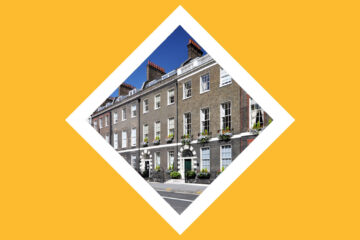I used to work at a University Law Clinic. One day two of us were deployed to assist with the defence of a group of Extinction Rebellion activists who had been arrested by the Police.
During evidence, there was a fascinating video played, where the police warned protesters that they had 2 minutes to move before being arrested, but in many incidences the police waited for fewer than 30 seconds before proceeding with the arrest. In the remaining 90 seconds the police had given them to move, there is no guarantee that the XR activists would have stayed put, so the Police in arresting them had basically gone a bit Gung ho. For the record, they were acquitted.
I am telling this story because it displays a troubling attitude. In this case, the police had already decided to exercise their power and arrest someone, despite the fact they still had 90 seconds to leave.
That attitude is important, because it is the same attitude that persisted with Derbyshire Police who were fining people left, right and centre for crimes they had not committed under the Coronavirus Act.
The same attitude was present in the vigil following the harrowing murder of Sarah Everard, where the Metropolitan Police arrested a peaceful vigil attendee, creating what I am sure will be a symbol of police abuse of power for years to come.
With this pattern of behaviour in mind, we should turn to the Crime, Police and Courts Bill being debated in Parliament.
The United Kingdom has, on a macro-level, a strange relationship with human rights. We were a key driver in getting the European Convention on Human Rights signed, but then spent the following years allowing the hard right to undermine and lie about it at every turn.
The same government (Blair/Brown) that passed the Human Rights Act, was also complicit in extraordinary rendition. And during the coalition, the Cameroon style civil liberty enthusiasts had to be stopped by the Liberal Democrats from implementing regressive policies such as the snoopers charter.
In essence, the governments of the United Kingdom consistently talk the talk on civil liberties but in practice, they rarely walk the walk.
In recent years, they have stopped even trying to talk the talk, with the Snoopers Charter and Spy Crimes laws playing a key part of the government’s domestic policy agenda.
It is because there is a worrying trend of government and agency mishandling of people’s core rights, that I think that this latest bill is so dangerous.
It represents an unwelcome change. Take for example, its protest clause which takes an incredibly narrow interpretation of acceptable protest and effectively criminalises the act of protest if it causes “annoyance”.
The point of a protest is to cause disruption and yes, that includes annoyance! Effective protest can lead to change, and to criminalise these effective tactics will lead to a constriction of the very freedoms we live under.
On a purely practical level, given the reputation of the Police with the Extinction Rebellion campaign, the Reclaim the Streets protests and the Police’s mis-handling of extra powers under the Coronavirus Act, can we genuinely trust the police with the handling of “protests that cause annoyance”? Lets be frank, their track record is less than stellar.
As a country, we should not be allowing our core rights to be eroded, just to satisfy a false narrative of keeping us safe.
To quote the liberal party activist and civil liberties enthusiast Harry Wilcock when refusing to hand over his identity card in the 1950’s, “I’m a liberal and I’m against this sort of thing.”


